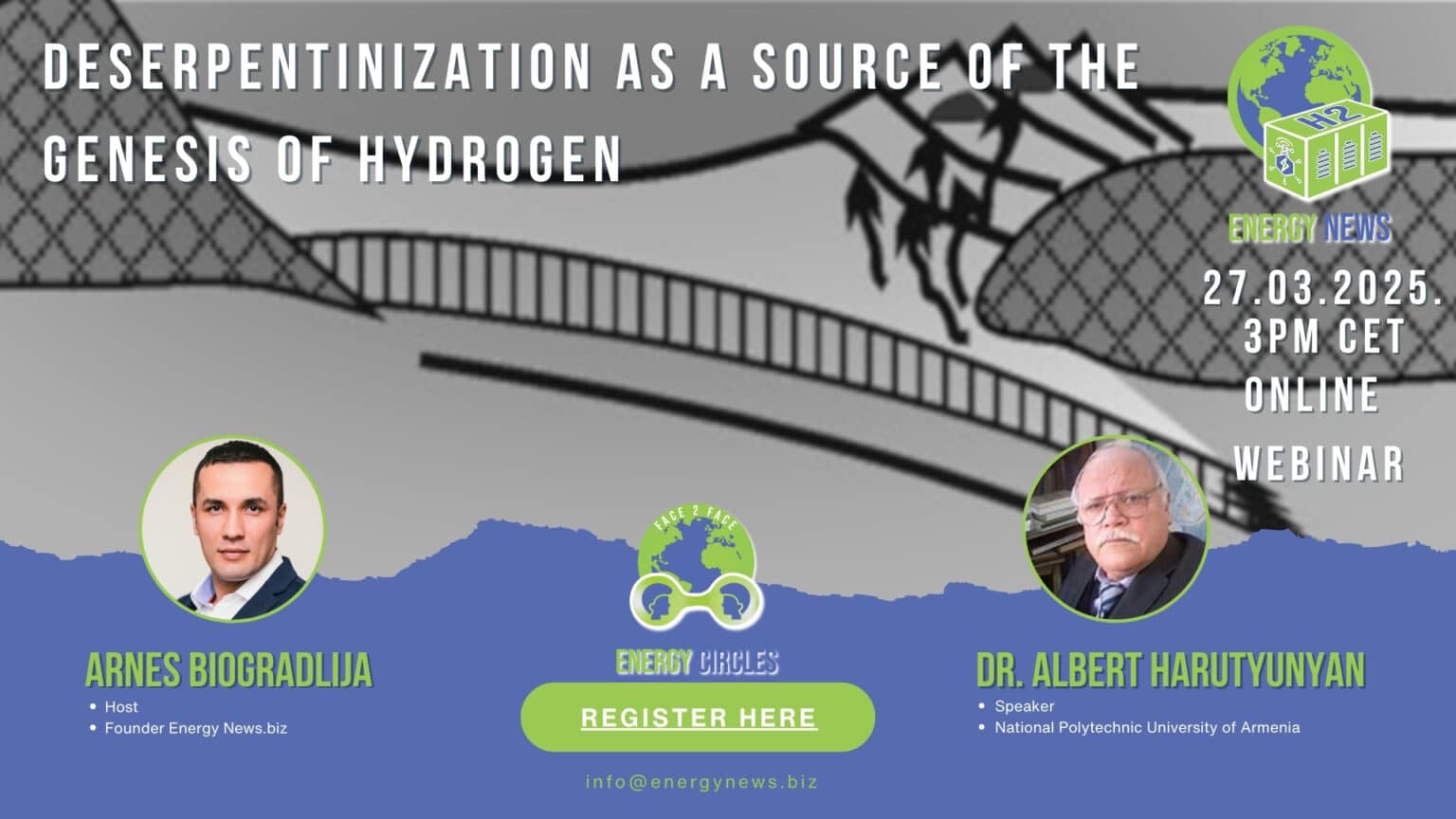The global energy sector’s pivot toward natural hydrogen has intensified scrutiny of geological processes like deserpentinization, which could yield vast subsurface hydrogen reserves. A 2023 U.S. Geological Survey estimate suggests subsurface hydrogen deposits may exceed 1 trillion tons globally—a potential game-changer for clean energy transitions.
Dr. Albert Harutyunyan, a geophysicist at the National Polytechnic University of Armenia, recently highlighted this potential in a webinar, detailing how dehydration of serpentinized rocks, at depths of 35-50 km, generates hydrogen under extreme thermobaric conditions. Yet, as interest grows, questions persist about scalability, extraction costs, and competing renewable technologies.
WATCH THE WEBINAR
Serpentinization, the hydration of iron-rich mantle rocks like olivine, forms serpentine minerals and releases hydrogen as a byproduct. The reverse process by means of deserpentinization,
started at temperatures of 500°C and pressure of 7-8 GPa, dehydrates these rocks, releasing water, which is instantly hydrolyzed into hydrogen H2 and oxygen O2. Harutyunyan’s research highlights how this process, occurring at depths of 100–150 km, can produce hydrogen concentrations up to 8.4 wt%, comparable to conventional natural gas reservoirs. However, these deposits are often inaccessible with current drilling technology, which rarely exceeds 12 km depth.
The same ultra-high-pressure environments (7–9 GPa) that liberate hydrogen also synthesize methane and heavier hydrocarbons, challenging the biogenic origin theory of fossil fuels. For instance, lab experiments replicating mantle conditions have produced abiotic methane, aligning with Harutyunyan’s observations of hydrocarbon-rich kimberlite pipes. Similarly, diamond formation at these depths—requiring carbon saturation and pressures over 5 GPa—suggests interconnected energy and mineral resource systems. Yet, commercial extraction remains constrained by technical barriers; less than 5% of global hydrogen production currently derives from natural sources, per the International Energy Agency (IEA).
Harutyunyan advocates for integrating geological surveys with seismic monitoring to identify migration pathways—a method successfully deployed in Mali’s Bourakébougou field, where a 98% pure hydrogen seep now powers local turbines.
The EU’s 2023 Hydrogen Strategy explicitly excludes natural hydrogen from its 20 million-ton renewable hydrogen target, citing “insufficient maturity.” Conversely, the U.S. Inflation Reduction Act offers tax credits for “clean” hydrogen regardless of source, potentially incentivizing exploration. For policymakers, the dilemma lies in balancing early-stage investment with unproven returns. Meanwhile, academia faces its own challenges: only 12% of published studies on serpentinization include quantifiable hydrogen flux data, limiting predictive modeling accuracy.
As debates over natural hydrogen’s role in decarbonization intensify, Harutyunyan’s insights underscore a critical reality: geological processes may offer abundant energy reserves, but their viability hinges on bridging gaps between deep Earth science and surface-level engineering.
Stay updated on the latest in energy! Follow us on LinkedIn, Facebook, and X for real-time news and insights. Don’t miss out on exclusive interviews and webinars—subscribe to our YouTube channel today! Join our community and be part of the conversation shaping the future of energy.





